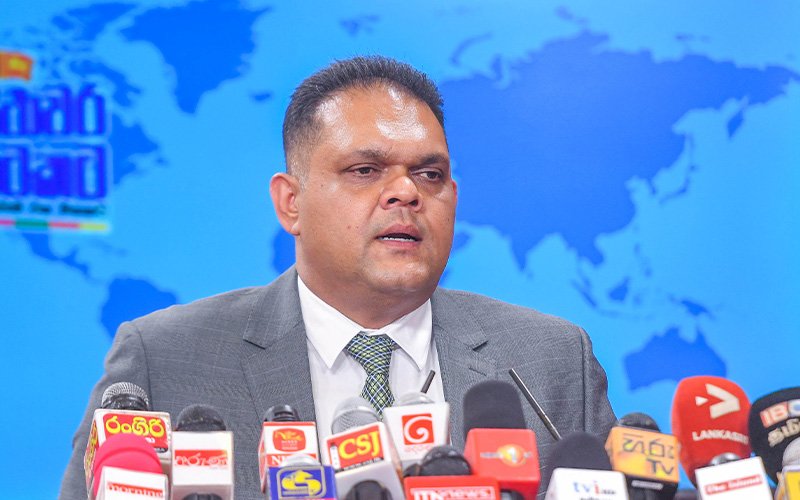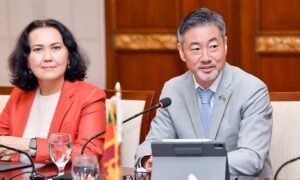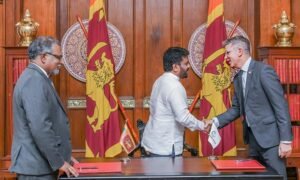
State Minister for Finance Shehan Semasinghe, announced that all uncertainties surrounding Sri Lanka’s debt sustainability have been resolved.
He noted that while the international community has shown optimism about Sri Lanka’s debt restructuring, some local parties remain sceptical for political reasons.
State Minister Semasinghe made these remarks during the press briefing titled “Collective Path to a Stable Country” held at the Presidential Media Centre today (02).
Addressing the Media Personnel, the state minister further elaborated;
The good news about debt restructuring, which is crucial for rebuilding the country’s economy, has been received. On June 26, agreements were reached with the Official Creditor Committee and the Paris Club countries as bilateral creditors. Additionally, an agreement was made with China Exim Bank on the same day, completing two essential aspects of debt restructuring.
The international community has expressed optimism about Sri Lanka’s debt restructuring. However, some parties refuse to view this process positively for political reasons. It is very unfortunate for the country. Initially, we believed that the criticism from some parties stemmed from a lack of understanding of our efforts.
It is now evident that those statements are made due to political hypocrisy. This was clearly demonstrated by the opposition when President Ranil Wickremesinghe addressed Parliament today. Therefore, the public should recognize the extent to which political manoeuvring is interfering with the country’s economic progress.
Comments were made about the situations in countries like Ghana, Ecuador, and Argentina. However, it’s important to understand the differences in debt restructuring between low-income and middle-income countries. Debt restructuring in Sri Lanka, a middle-income country, is more complex than in low-income countries. Despite this, Sri Lanka is ahead in the debt restructuring process compared to other middle-income countries.
Additionally, we are prepared to demonstrate three key points regarding debt restructuring. Our creditors have granted a grace period from 2024 to 2027 for debt repayment. During this period, we have the opportunity to use approximately USD 5 billion for the benefit of the country’s people.
By 2032, the public debt-to-GDP ratio should be reduced to 95%. The gross financial requirement needs to be lowered to 13% between 2027 and 2032, and foreign debt servicing should be reduced to 4.5% during the same period.
We have now agreed on a specific debt restructuring plan to achieve these three goals, eliminating all uncertainties regarding the country’s debt sustainability.
Through this economic management approach, inflation in Sri Lanka has decreased from 70% to 1.7%. Additionally, the interest rate for one-year treasury bills has reached 10% in the country’s Treasury bill auction.








